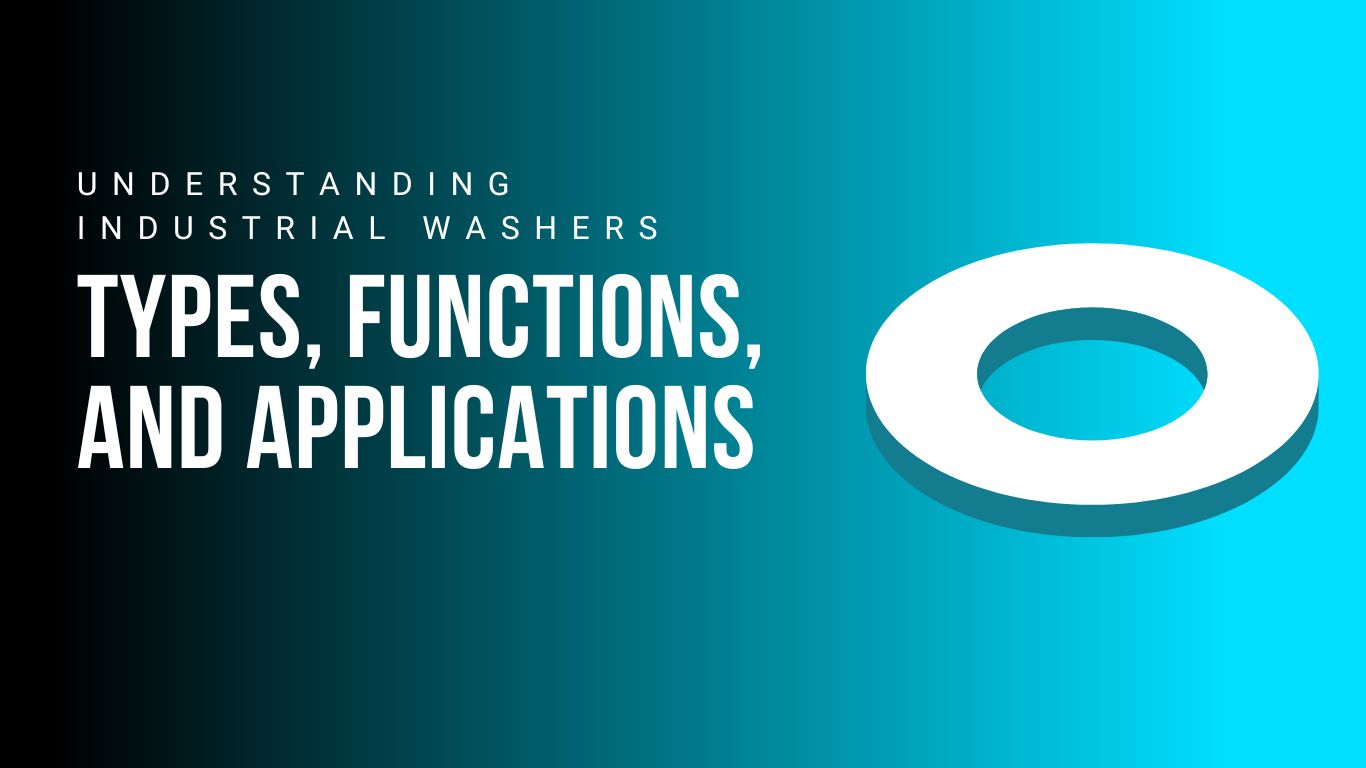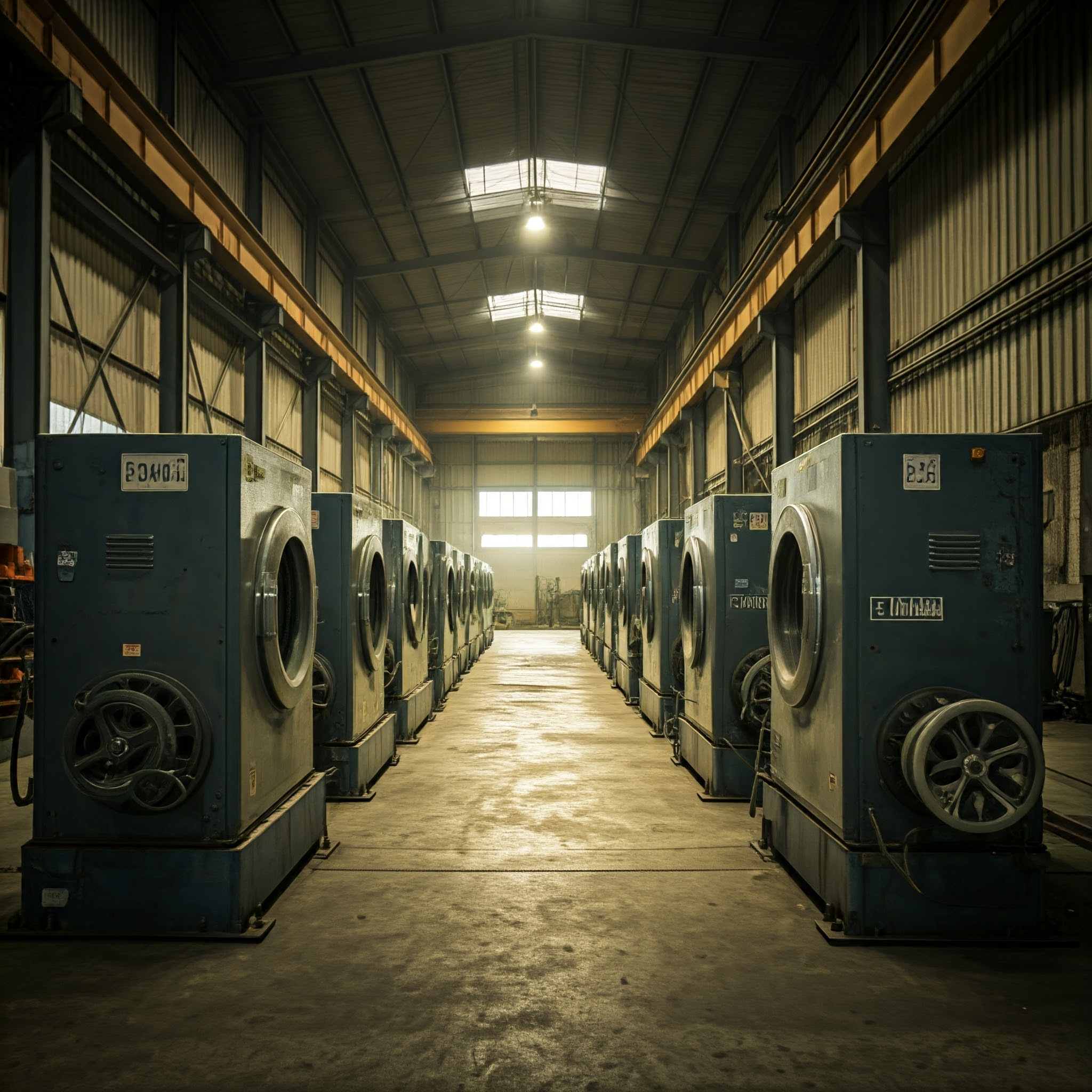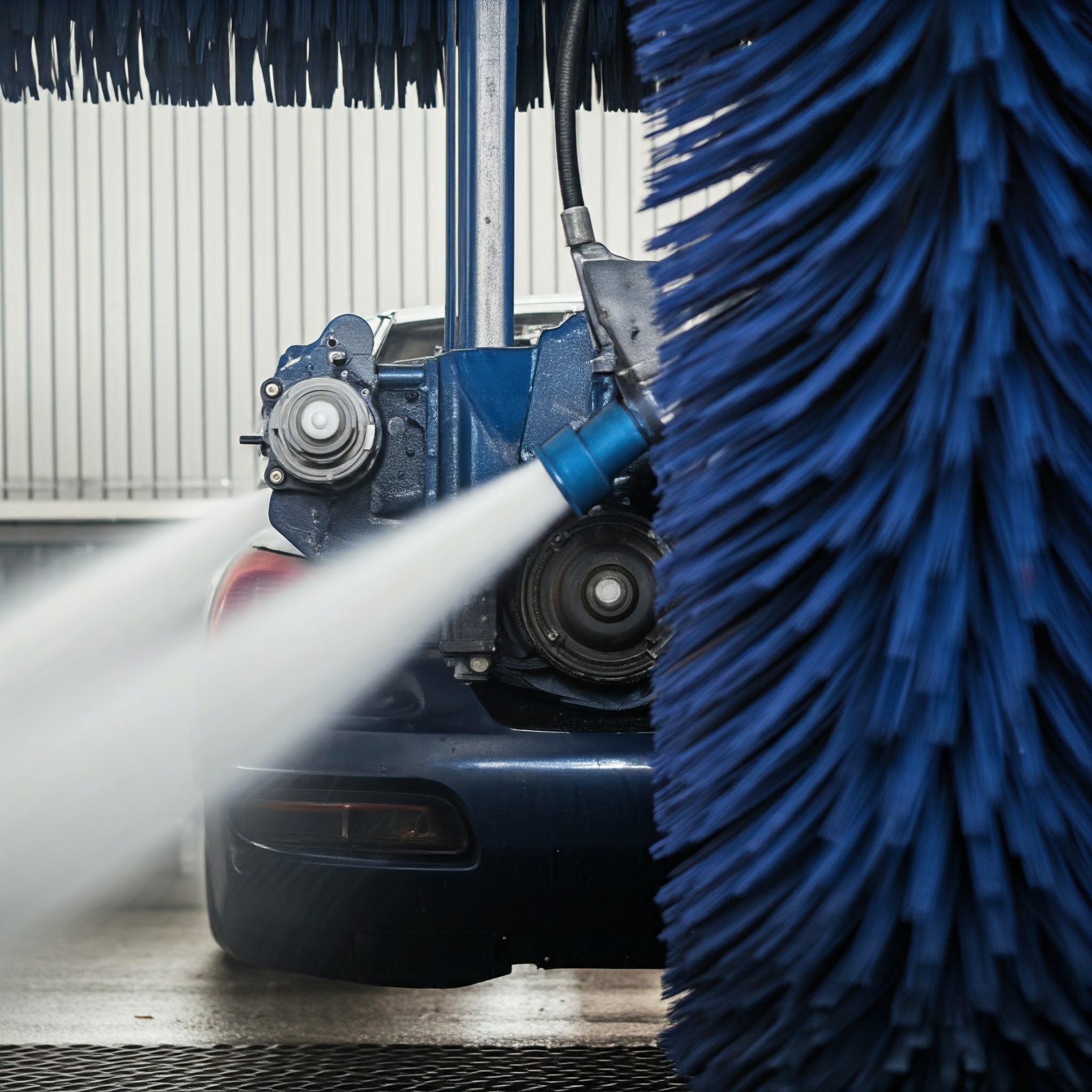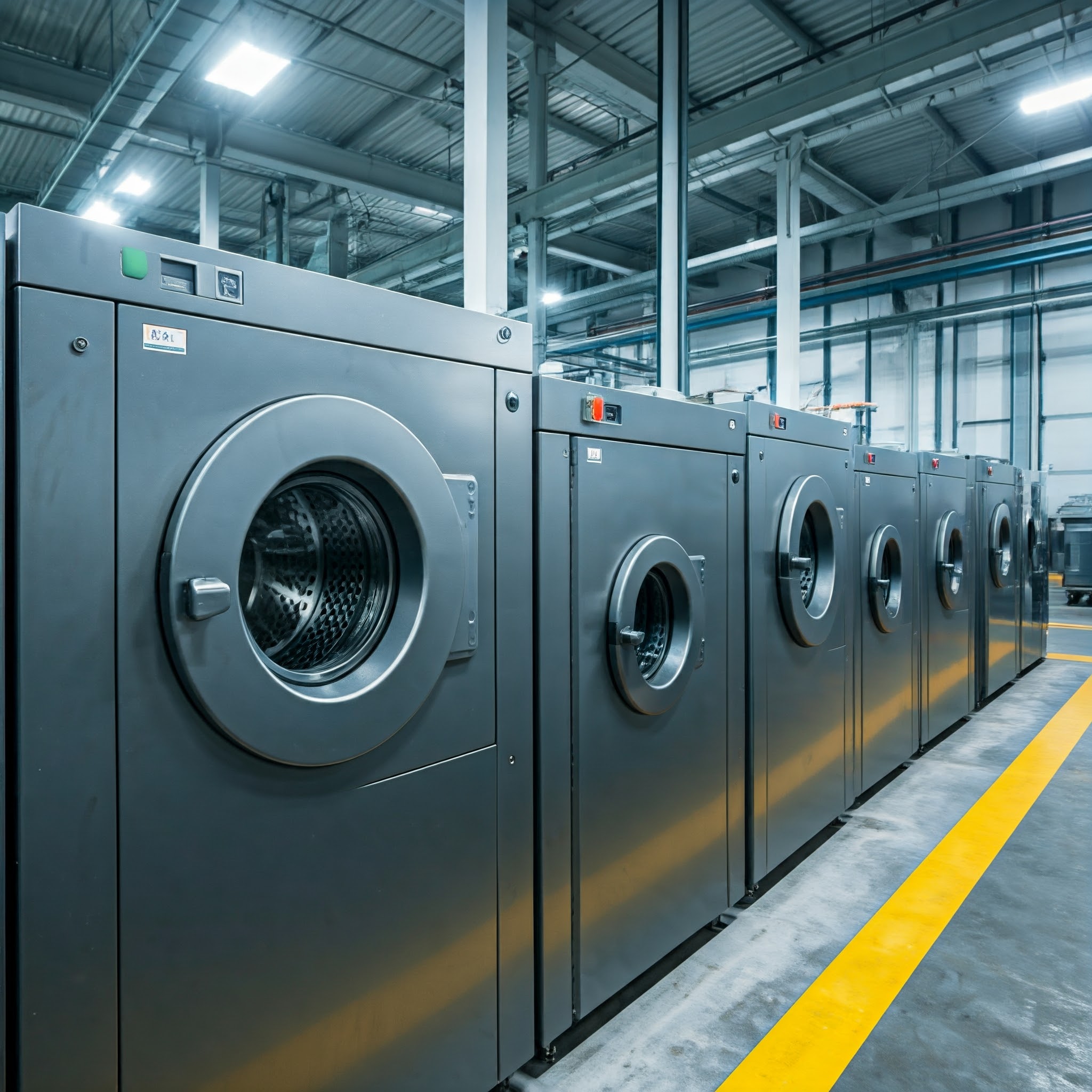Understanding Industrial Washers: Types, Functions, and Applications

industrial washers may seem like a small, simple component, but they are an essential part of machinery, construction, and a variety of other industries. Whether you're building a new project or maintaining an existing one, knowing the different types of washers, their functions, and how they’re applied can make a big difference in ensuring long-term performance and durability.
In this article, we’ll dive deep into the world of industrial washers. I’ll walk you through the key types, their unique functions, and real-world applications across various industries
Table of Contents:
- What are Industrial Washers?
- Types of Industrial Washers
- Functions of Industrial Washers
- Applications of Industrial Washers
- How to Choose the Right Industrial Washer for Your Project
- Conclusion
What are Industrial Washers?
Industrial washers are thin, flat discs made of metal or other materials. Their primary role is to distribute the load of a fastener, such as a bolt or nut, evenly across the surface. By doing so, washers prevent damage to the surface being fastened, increase the effectiveness of the fastener, and provide additional protection against corrosion.
You’ll find industrial washers in a variety of sizes and materials, each designed for specific functions. Whether you're working on a small project or a large-scale industrial installation, understanding how these shim washers work is key to achieving the best results.
Types of Industrial Washers
There are several types of industrial washers, each designed for different purposes. Let’s take a closer look at the most common types.
Flat Washers
Flat washers are the most basic and commonly used type of washer. They are typically used to spread the load of a fastener and prevent damage to the material it’s attached to.
Features:
- Even load distribution.
- Prevents damage to the surface from the fastener.
- Commonly made from steel, stainless steel, or brass.
Applications:
- Used in almost every industry, including automotive, construction, and manufacturing.
Lock Washers
Lock washers are designed to prevent fasteners from loosening due to vibrations or other forces. They are typically used in high-vibration environments where the fastener’s stability is critical.
Features:
- Prevents fasteners from coming loose.
- Commonly comes in spring or split-ring shapes.
- Helps maintain torque and prevents misalignment.
Applications:
- Machinery and automotive industries.
- Electrical and electronic equipment.

Sealing Washers
Sealing washers are designed to provide a tight, leak-proof seal when used with bolts, nuts, or screws. They are typically made of materials like rubber or neoprene, which can withstand pressure and prevent the leakage of liquids or gases.
Features:
- Offers excellent sealing properties.
- Ideal for environments where leaks are a concern.
- Can be made of rubber, silicone, or other elastic materials.
Applications:
- Plumbing systems.
- Gas pipelines.
- Automotive systems where leaks could cause issues.
Specialty Washers
Specialty washers are designed for specific applications, including those that require high resistance to extreme temperatures, pressure, or corrosion.
Features:
- Tailored for specific, high-demand applications.
- Designed for extreme conditions like high heat, pressure, or chemical exposure.
- Available in various materials, including brass, stainless steel, or other alloys.
Applications:
- Aerospace.
- High-temperature industrial machinery.
- Specialized automotive systems.
Functions of Industrial Washers
Industrial washers serve several important functions that can significantly improve the performance and safety of a fastened connection. Below are the key functions of industrial washers:
- Load Distribution:
The most basic function of a shim washer is to spread the load of a fastener, such as a bolt or nut, over a larger area. This helps prevent surface damage and ensures a more secure connection.
- Preventing Corrosion:
Certain washers, such as those made from stainless steel or coated with corrosion-resistant materials, help protect against rust and corrosion. This is especially important in outdoor or marine applications.
- Maintaining Fastener Stability:
Lock washers, for example, help prevent nuts and bolts from loosening due to vibrations, ensuring that your fasteners stay tight and secure.
- Sealing:
Sealing washers create a barrier that prevents fluids or gases from leaking around the fastener. This is especially useful in plumbing, automotive, and industrial applications.

Applications of Industrial Washers
Industrial washers play an essential role across a variety of industries. Let’s take a closer look at how washers are applied in different sectors.
- Automotive Industry:
In the automotive industry, washers are used in a wide range of applications, from securing engine components to ensuring that electrical systems remain sealed. For example, flat washers and lock washers are commonly used to prevent bolts from loosening in engine compartments, while sealing washers prevent fluid leaks in automotive systems.
- Construction Industry:
In construction, washers are used in structural applications to ensure the stability of buildings, bridges, and other structures. Flat washers are used to spread the load of bolts on structural connections, while sealing washers are used to prevent leaks in waterproofing systems.
- Electrical & Electronics Industry:
Electrical and electronic systems rely heavily on sealing washers to prevent moisture ingress and protect sensitive components. Lock washers are also commonly used to maintain the stability of connections in high-vibration environments like generators or machinery.
- Industrial Equipment & Machinery:
Industrial machinery often requires lock washers to maintain tight connections and specialty washers to handle high temperatures or pressure. In machinery that runs constantly, such as conveyor belts or turbines, washers ensure that the fasteners remain intact, even under constant stress.
How to Choose the Right Industrial Washer for Your Project
When selecting industrial washers for your project, there are a few key factors to consider. Here’s how you can make the best choice:
- Material: Choose washers made from materials that suit your environment. Stainless steel or galvanized washers are ideal for outdoor or marine environments, while brass or copper washers may be needed for electrical connections.
- Size: Ensure that the washer is the correct size for the fastener and the surface you’re working with. A washer that’s too small won’t provide adequate load distribution, and one that’s too large could cause alignment issues.
- Functionality: Consider the function you need the washer to perform. Do you need it to prevent loosening (lock washers), distribute load (flat washers), or seal against leaks (sealing washers)? Select a washer that best fits your project’s needs.
- Environmental Factors: If your washers will be exposed to extreme heat, moisture, or pressure, make sure they are rated to withstand these conditions.
If you need something specific, like shim washer, shim sheet metal, or precut shims, choosing the right material and size is key to achieving reliable results.

Conclusion
Industrial washers are small components that serve critical functions in many industries. From distributing load and preventing corrosion to sealing leaks and maintaining fastener stability, washers ensure the smooth operation of machinery, vehicles, and structures. Understanding the types, functions, and applications of washers will help you make the best decision for your projects, ensuring efficiency, reliability, and long-term durability.
Whether you’re working in construction, automotive, or industrial machinery, choosing the right washer will ensure that your fastenings stay secure and function as intended. Always remember to consider material, size, functionality, and environmental factors when making your selection. If you need help, don’t hesitate to consult with an expert or washer manufacturer to find the best washer solution for your needs.
About Sachin Shim
Our range of shims includes metal, machine, industrial, precision, adjustable, machinery, engineering, custom, and alignment shims. These shims are designed for various applications, such as machinery alignment, fine adjustments in industrial-grade machines, engineering projects requiring steel shims, heavy-duty machinery requiring versatile metal shims, aerospace applications demanding precision stainless steel shims, automotive use requiring adjustable aluminum shims, precision engineering projects using high-quality brass shims, construction applications requiring durable plastic shims, specialized machinery needing customized shim solutions, and manufacturing processes requiring fine-tuning shims for precise alignment and accurate machine setup and leveling.
Author
Meet Seema, our expert author in industrial materials with a deep understanding of washers. With years of experience, Seema brings valuable insights and expertise to this guide, making them a trusted source for all things related to washers. Join us as we delve into the art of washers with Seema leading the way.
List Other similar blogs







